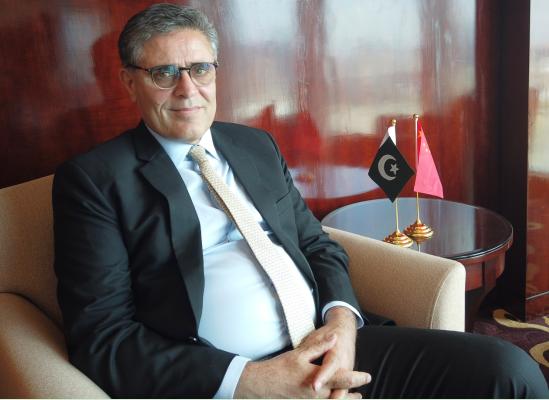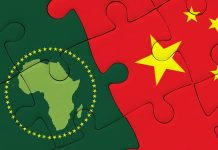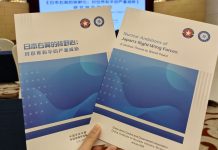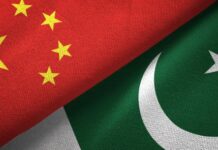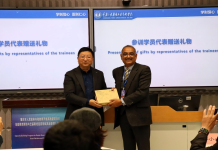BEIJING: Pakistan Ambassador to China Khalil Hashmi on Tuesday said the Yangtze River Delta, a thriving economic engine and manufacturing powerhouse in China, is emerging as a hub for potential collaboration between Pakistan and China in areas such as electric vehicles, new energy materials, and semiconductors.
The ambassador’s itinerary underscored Pakistan’s efforts to foster deeper economic ties and explore avenues for investment and cooperation.
During his ongoing visit to Shanghai, China, Ambassador Hashmi engaged in a series of meetings with political leaders, business elites, academics and the media, highlighting the city’s pivotal role as a gateway to the Yangtze River Delta region.
The Yangtze River Delta, a vibrant economic region spanning Shanghai and the provinces of Jiangsu, Zhejiang, and Anhui, has emerged as a leading force in China’s industrial innovation and economic development.
With an area of approximately 358,000 square kilometers, the region contributes nearly a quarter of China’s GDP and over one-third of the country’s total foreign trade, demonstrating its strategic importance in the national economy, according to the CEN report.
“The Yangtze River Delta presents immense opportunities for joint ventures and collaborations between Pakistan and China,” Ambassador Hashmi emphasized adding, “We see great potential in sectors like electric vehicles, where China is a global leader, and new energy materials, which are critical for sustainable development. Furthermore, semiconductors, a cornerstone of modern technology, offer another promising area for cooperation.”
Efforts have been intensified for Pakistan to attract Chinese investment following Prime Minister Shahbaz Sharif’s visit to China last month, during which a joint statement was issued, outlining 13 priority export-oriented industrial sectors for Pakistan’s development. The 13 sectors, encompassing mines and minerals, iron and steel, petrochemicals, oil and refineries, agriculture, ICT, semiconductors, electric vehicles and solar panels, among others, represent key areas where China’s technologies can be transferred to fostering sustainable growth in Pakistan.
To pave the way for business collaboration, Ambassador Hashmi stressed the importance of active participation in exhibitions, conferences and events to bridge the gap between the business communities of the two countries. “The upcoming FoodAg Pakistan, scheduled for early next month in Karachi, has already attracted the registration of 220 Chinese companies. Through these measures, we aim to elevate our economic trade and investment cooperation to new heights,” he said.
In addition to business activities, Ambassador Hashmi highlighted cultural initiatives to enhance mutual understanding. “This year, we are planning to organize Pakistan Fashion Week in Shanghai, showcasing our vibrant fashion industry and cultural heritage,” he said.
Moreover, a tour operator exchange programme is in the pipeline to further boost tourism and people-to-people contacts. –Agencies

